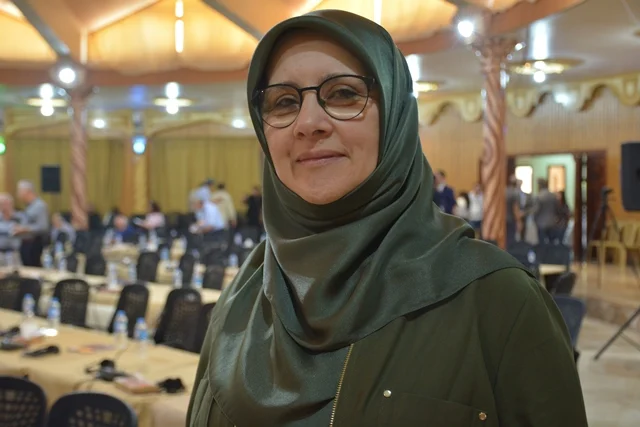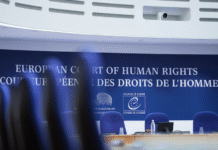Turkey’s Constitutional Court has ruled that the pretrial detention of a former Kurdish lawmaker accused of inciting violence during protests linked to the 2014 siege of Kobani in northern Syria violated her rights, Turkish Minute reported.
Hüda Kaya, a former member of parliament from the pro-Kurdish Peoples’ Democratic Party (HDP), now operating under its successor, the Peoples’ Equality and Democracy Party (DEM Party), was arrested in late 2023 and held for eight months before being released at the end of her first hearing in June 2024.
The high court found that Kaya’s right to liberty and security had been violated, citing a lack of sufficient legal grounds for her imprisonment. The ruling stated that no concrete evidence linked Kaya to the deadly protests beyond her role on the HDP’s Central Executive Board at the time.
The Constitutional Court said the case lacked a clear connection between Kaya’s personal actions and the violence that erupted during the demonstrations, which took place in early October 2014 in response to the Islamic State in Iraq and the Levant’s (ISIL) siege of the Syrian Kurdish town of Kobani. Thirty-seven people were killed during nationwide protests, mostly in Turkey’s predominantly Kurdish southeast.
The court also criticized the prosecution’s failure to present new evidence despite nearly a decade having passed between the events and Kaya’s arrest. In addition, it found a violation of her right to a fair trial, citing extensive secrecy orders that restricted her and her lawyer’s access to the investigation file and prevented them from mounting an effective defense.
As a result, the court ordered the Turkish government to pay Kaya 200,000 Turkish lira (approximately $4,900) in non-pecuniary damages.
Kaya’s case stems from a second indictment related to the Kobani protests. It followed the 2023 convictions of 24 former HDP politicians in a separate Kobani trial, which lasted nearly three years. Turkish authorities accuse HDP members of inciting the unrest, though the defendants say their calls for solidarity with Kobani were protected under freedom of expression.
Following the initial trial, prosecutors filed a second indictment against five additional HDP figures, including Kaya, alleging that they also urged people to take to the streets. The five face 29 charges, including “attempting to destroy the unity of the state,” “membership in a terrorist organization” and “murder.” That trial remains ongoing.
Pro-Kurdish parties in Turkey have long faced legal and political pressure. Many have been accused of links to the outlawed Kurdistan Workers’ Party (PKK), which is designated a terrorist organization by Turkey and its Western allies. Numerous Kurdish politicians are imprisoned on terrorism charges, and several Kurdish parties have been shut down by Turkey’s top court over alleged PKK ties. Successor parties have consistently re-emerged under new names.
The Kobani trials are widely seen as politically charged and carry broad implications for Turkey’s Kurdish political movement. Government policy toward Kurdish politicians has hardened since the collapse of peace talks with the PKK in 2015, leading to a more nationalist approach under the administration of President Recep Tayyip Erdoğan.
The court’s ruling on Kaya comes amid renewed efforts to restart a peace process aimed at ending the PKK’s armed campaign and fostering political reconciliation. A newly established parliamentary commission held its inaugural meeting Tuesday to support the initiative.















